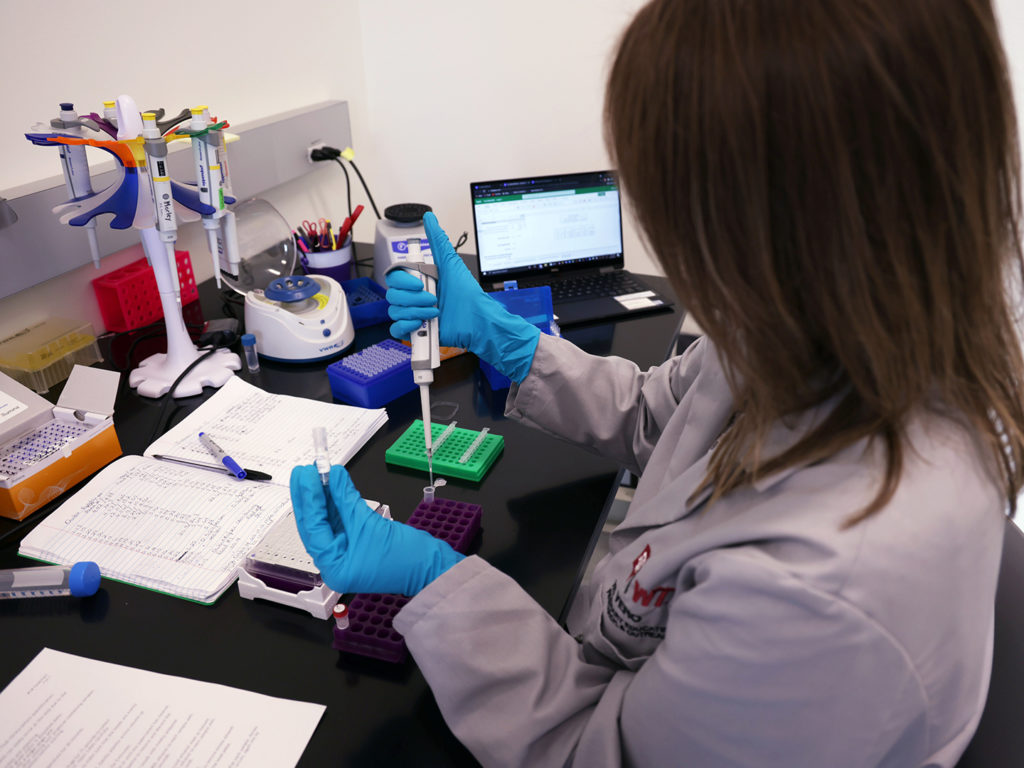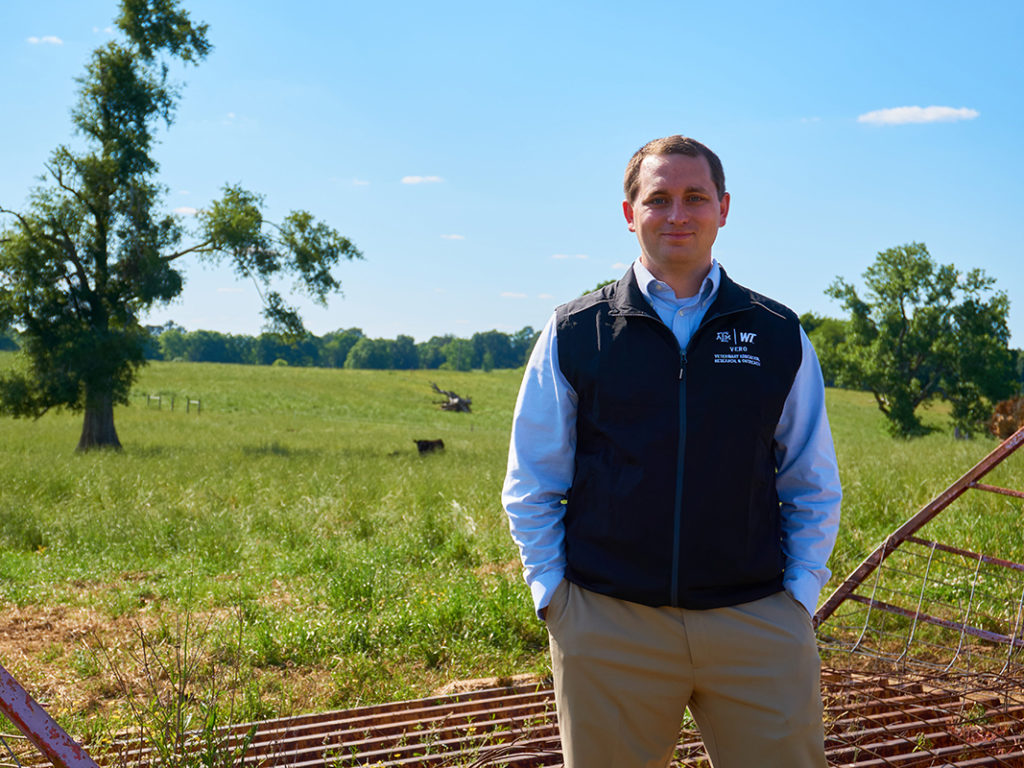Texas A&M VERO Representatives Share Inspiring Research At International Conference
Story by Megan Myers, CVMBS Communications

Researchers from the Texas A&M College of Veterinary Medicine & Biomedical Sciences’ (CVMBS) Veterinary Education, Research, & Outreach (VERO) program recently shared 12 abstracts detailing their work on topics ranging from common diseases in feedlot cattle to the calf microbiome during the Conference of Research Workers in Animal Diseases.
The team of four faculty members, one postdoctoral researcher, and five students participated in the conference, held Dec. 5-7 in Chicago, to present on the food animal research happening at VERO, which has the potential to greatly benefit the global feedlot industry.
“The presentations by VERO faculty and students at the Conference of Research Workers in Animal Disease are exemplary of the ground-breaking ongoing in the VERO research program,” said Dr. Susan Eades, VERO associate dean for administration. “Drs. (Paul) Morley, (Sarah) Capik, (Matthew) Scott, and (Robert) Valeris-Chacin each bring a specific expertise to this strong research team that leverages collaborations across the Texas A&M System, Texas A&M AgriLife, and regional partnerships. The team is active in projects that will enhance cattle health and increase sustainability of cattle industries.”
“All of the presentations were truly excellent, and I could not be prouder of our body of work and the great representation by the speakers,” said Dr. Paul Morley, VERO director for food animal research. “All of this work was dependent upon active collaborations among scientists from Texas A&M University, West Texas A&M University (WT), Texas A&M AgriLife, multiple other universities, and a large number regional stakeholders, so it truly represents the spirit that we are working to grow in the VERO partnership.”
Enhancing Cattle Health

Two of the research abstracts were presented by Dr. Matthew Scott, an assistant professor of microbial ecology and infectious disease at VERO, who is actively studying bovine respiratory disease (BRD), the leading disease complex in cattle.
During the conference, he discussed his findings on the disease, which included new methods for predicting BRD before clinical signs appear.
In his first project, Scott used digital mRNA profiling to analyze the individual gene expression levels for seven populations of healthy cattle. He was able to determine, with 90% accuracy, genomic patterns found in animals that would go on to develop severe BRD and require multiple antibiotic treatments.
Scott’s second project created a computational network to identify co-expressed genes that are highly associated with BRD development and already active when the cattle arrive at a new facility.
Both of these projects were funded by the U.S. Department of Agriculture’s National Institute for Food and Agriculture.
“We’re very excited about the findings of these projects and are using them as a foundation for future studies that will hopefully provide a method or test that can predict disease on a herd-by-herd basis,” Scott said.
Providing Opportunities
The conference was a great opportunity for students to practice presenting their research in an academic setting. Two of the students who attended the conference also received awards for their abstracts.
Taylor McAtee, a WT master’s student and graduate research assistant in Morley’s lab, received the First Place Oral Presentation Award from the American College of Veterinary Microbiologists (ACVM) for her research on the respiratory microbiome of cattle and the fecal microbiome of pre-weaned dairy calves.
Maggie Murphy, a WT Ph.D. student working in Morley’s lab, received a CRWAD Travel Award for her research on the cattle microbiome and how it is impacted by antimicrobial drugs.
Beyond VERO, many other members of the CVMBS attended the conference, including senior professor Dr. Garry Adams, who was invited to give a keynote lecture as the ACVM’s Distinguished Veterinary Microbiologist of 2021.
###
For more information about the Texas A&M College of Veterinary Medicine & Biomedical Sciences, please visit our website at vetmed.tamu.edu or join us on Facebook, Instagram, and Twitter.
Contact Information: Jennifer Gauntt, Director of VMBS Communications, Texas A&M College of Veterinary Medicine & Biomedical Sciences, jgauntt@cvm.tamu.edu, 979-862-4216


